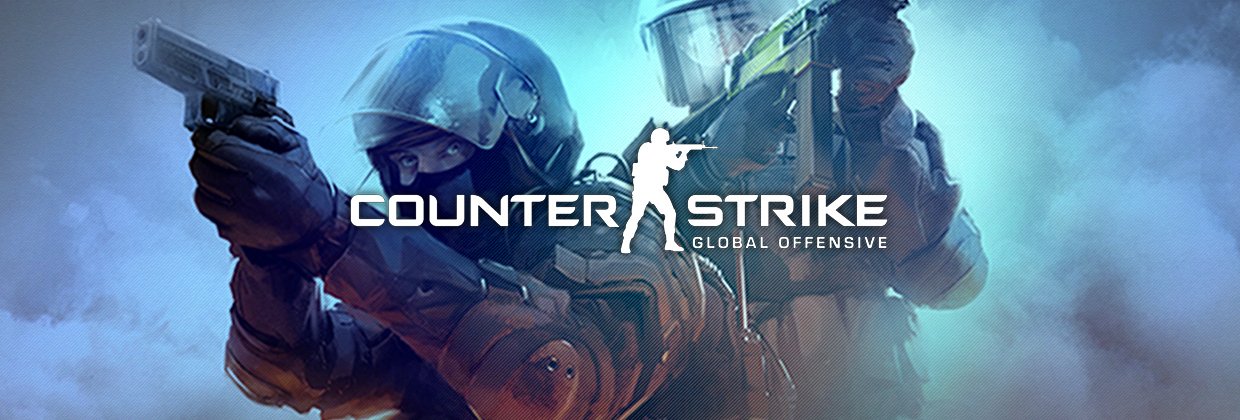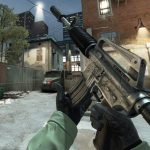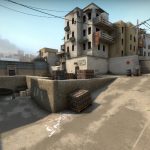
In “Counter-Strike: Global Offensive” (CSGO), weapon cases are virtual items that players can obtain through gameplay or by purchasing keys from the in-game store. These cases contain various cosmetic weapon skins, which are purely aesthetic and do not affect gameplay or weapon performance in any way.
When you receive a weapon case, you will need to purchase a corresponding key from the in-game store to unlock it. The keys are usually sold separately and can only be used once. Once you open the case with the key, you will receive one random weapon skin from the case’s collection. The rarity of the skins varies, with some being more common and others being extremely rare and valuable.
CSGO weapon skins have become highly sought after by players due to their unique designs and collectible nature. Some skins can be quite valuable, and a whole trading and skin market has developed around them. Players can buy, sell, and trade these skins with each other, and there are third-party websites and platforms dedicated to facilitating these transactions.
It’s important to note that CSGO weapon skins are purely cosmetic and do not give any competitive advantage in the game. They are primarily a way for players to personalize their weapons and show off their style while playing the game.
How to get a case in CSGO?

In “Counter-Strike: Global Offensive” (CSGO), there are several ways to obtain weapon cases:
- Random Drops: While playing the game, you have a chance to receive a weapon case as a random drop at the end of a match. However, the drops are limited to a certain number per week, so you won’t receive cases after you’ve reached the weekly drop limit.
- Operation Pass: During CSGO Operation events, Valve releases special Operation Passes for players to purchase. Owning an Operation Pass grants you access to additional content, including exclusive weapon cases that are only available to pass holders.
- Gifts from other players: Sometimes, other players may gift you weapon cases, especially if they don’t have any use for them or want to be generous.
- In-Game Events and Promotions: Valve occasionally runs special events or promotions where players can earn weapon cases as rewards for participating or completing specific tasks.
- Trading and Market Purchases: If you want a specific case or have duplicates, you can trade with other players or purchase cases from the Steam Community Market (if they are tradable and marketable).
Remember that in order to open a weapon case and obtain the weapon skins inside, you will need to purchase a corresponding key from the in-game store. Each case requires its specific key to unlock it. Keys are not obtainable in-game and must be bought separately from the Steam Market or the in-game store.
Please note that my information is up-to-date until September 2021, and there might have been changes or new features introduced in CSGO after that date.
Random Drops
Random drops in “Counter-Strike: Global Offensive” (CSGO) are a way for players to receive various in-game items, including weapon cases.
Here’s how random drops work:
- Weekly Drop Limit: Each player has a weekly drop limit, which means you can only receive a certain number of item drops per week. The drop limit resets every week on Wednesday.
- Playtime and Game Mode: To be eligible for random drops, you need to have a certain amount of playtime in official and community servers. Playing in VAC-secured servers (official servers or community servers that use Valve Anti-Cheat) is necessary for drops.
- Chance-based System: Random drops are distributed based on a chance-based system. While playing, you have a chance to receive a drop at the end of a match. However, receiving a drop is not guaranteed, and it’s entirely random.
- Dropped Items: The items you can receive as drops include weapon cases, weapon skins, stickers, and other cosmetic items. When you get a drop, it will appear in your inventory.
- Non-Tradable and Non-Marketable: It’s important to note that some items obtained through random drops are non-tradable and non-marketable, which means you cannot trade or sell them on the Steam Community Market.
- Limitations on Prime Accounts: If you have a Prime Account (earned by reaching Private Rank 21 or purchasing Prime Status in-game), you may have a slightly higher chance of receiving drops compared to non-Prime players.
Keep in mind that the chances of receiving valuable items like rare weapon skins or highly sought-after cases are relatively low. As such, obtaining specific items through random drops can be a matter of luck. If you want to get specific weapon skins or cases, you may consider trading, purchasing from the Steam Community Market, or buying them from other players.
Operation Pass
In “Counter-Strike: Global Offensive” (CSGO), an Operation Pass refers to a special in-game item that grants players access to exclusive content, missions, and rewards during a limited-time event called an “Operation.” Operations are major events introduced by Valve in CSGO, usually lasting several months, and they bring new gameplay features and cosmetic content to the game.
When a new Operation is launched, players have the option to purchase an Operation Pass from the in-game store or the Steam Community Market.
The Operation Pass is a one-time purchase, and owning it grants players various benefits, such as:
- Access to Missions: Operations introduce a series of weekly missions and objectives for players to complete. These missions can involve playing specific game modes, achieving certain objectives, or using particular weapons. By completing these missions, players earn rewards like Operation Stars, XP, or exclusive weapon skins.
- Operation Stars and Operation Rewards: Operation Pass holders can earn Operation Stars by completing missions and earning XP. Accumulating Stars allows players to level up their Operation Pass and unlock additional rewards, such as exclusive weapon skins, graffiti sprays, and stickers.
- Operation Coin: When players purchase an Operation Pass, they receive an Operation Coin. This coin is displayed on their in-game profile and upgrades based on the number of stars earned during the Operation. The coin serves as a badge of honor, showcasing a player’s involvement and achievements during the event.
- Exclusive Case Drops: During an Operation, pass holders may receive exclusive weapon cases as random drops while playing the game. These cases contain unique and limited-time weapon skins related to the Operation theme.
- Access to Operation Maps: Some Operations introduce new or updated maps that are available exclusively to pass holders during the event. These maps can be played in both casual and competitive game modes.
- Operation Journal: Pass holders have access to an Operation Journal that tracks their progress, displays mission details, and shows available rewards.
Each Operation brings its own theme, story, and content, making them highly anticipated events within the CSGO community. After an Operation ends, the exclusive content becomes unavailable, and players can no longer purchase new Operation Passes until the next Operation is released.
Gifts from other players
In “Counter-Strike: Global Offensive” (CSGO), players have the option to send and receive gifts to and from other players. This gifting feature allows players to share in-game items, including weapon skins, cases, stickers, and other cosmetic items.
Here’s how gifting works in CSGO:
- Sending a Gift: If you want to send a gift to another player, you need to be friends with them on Steam. Once you are friends, you can access the in-game inventory and select the item you wish to gift. Click on the “Send Gift” option, choose the recipient from your friend list, and send the gift to them. The recipient will receive a notification and the gifted item will appear in their inventory.
- Receiving a Gift: If another player sends you a gift, you will receive a notification on Steam. The notification will inform you of the gift and provide details about the item. To accept the gift, you need to open the notification and confirm that you want to add the item to your inventory.
- Gifting Restrictions: There are some restrictions on gifting to prevent abuse and fraud. For example, new Steam accounts may have limited gifting capabilities, and some items may have additional restrictions on gifting, such as being non-tradable or non-marketable.
- Gifting During Special Events: During certain in-game events or promotions, Valve may enable special gifting features or allow players to obtain and send event-specific items to their friends.
It’s important to remember that gifting in CSGO is subject to the Steam Community Market restrictions and the Steam Subscriber Agreement. Certain items may have specific limitations on trading and gifting, and players should be cautious about accepting gifts from unfamiliar sources to avoid potential scams or unauthorized transactions.
Always ensure that you are engaging in legitimate gifting with trustworthy friends or acquaintances, and be aware of the rules and restrictions related to gifting in CSGO and on the Steam platform.
In-Game Events and Promotions
In “Counter-Strike: Global Offensive” (CSGO), in-game events and promotions are special occasions organized by Valve to introduce new content, game modes, cosmetic items, and unique gameplay experiences for players. These events are usually time-limited and offer various rewards and incentives for participation.
Here are some common types of in-game events and promotions in CSGO:
- Operations: Operations are major events that introduce new maps, game modes, missions, and cosmetic content to the game. Players can purchase an Operation Pass to gain access to exclusive missions and rewards. Operations typically run for several months and provide players with new challenges and activities to complete.
- Major Championships (Majors): CSGO Majors are Valve-sponsored tournaments featuring top professional teams from around the world. These events are held annually and are highly anticipated by the community. During Majors, in-game stickers and souvenir packages are available for purchase, with a portion of the proceeds going to support the participating teams and tournament organizers.
- Seasonal Events: Valve often hosts special events during holidays or other notable occasions, such as Halloween, Christmas, New Year, and more. These events may introduce themed maps, cosmetic items, or game modes to celebrate the season.
- Special Game Modes: Occasionally, Valve introduces limited-time game modes that provide unique gameplay experiences. These game modes can be different from the standard competitive or casual modes and may feature special rules, abilities, or objectives.
- Community Events: Sometimes, Valve collaborates with the CSGO community or content creators to organize community-driven events. These events may involve custom maps, special challenges, or community tournaments.
- Promotional Tie-ins: Valve has collaborated with other games, movies, or brands in the past to introduce promotional tie-in events. These events may include themed cosmetic items inspired by the collaboration.
During these events and promotions, players can participate in special activities, complete event-specific missions, earn exclusive rewards, and access unique cosmetic items that are only available for a limited time. Events and promotions add variety and excitement to the game, encouraging players to engage in different aspects of CSGO and fostering a sense of community participation.
Trading and Market Purchases
In “Counter-Strike: Global Offensive” (CSGO), trading and market purchases refer to the ability of players to exchange in-game items, such as weapon skins, cases, stickers, and other cosmetic items, with each other. The trading and market systems provide players with opportunities to buy, sell, and trade their items, facilitating a robust player-driven economy within the game.
Here’s how trading and market purchases work in CSGO:
Trading:
- Steam Trading: CSGO items are managed through the Steam inventory system. Players can initiate trades with their friends by sending trade offers through Steam’s trading interface. Both parties need to agree on the items being exchanged, and the trade offer must be accepted by the recipient.
- Trade Hold: When trading items with someone for the first time or using a new device, there might be a trade hold period for a few days to ensure security. During the trade hold, the items involved will not be transferable.
- Item Values: The value of CSGO items is determined by supply and demand. Rare or desirable items are often more valuable than common ones. Numerous external websites and tools are available to help players determine item values and make fair trades.
- Trade Scams: Players should exercise caution during trades to avoid scams. Common scams include misleading item names, impersonating other users, and fraudulent links. Always verify the items and the identities of the traders before accepting a trade offer.
Market Purchases:
- Steam Community Market: CSGO items can be bought and sold on the Steam Community Market, a platform within Steam where players can list their items for sale at a specific price. Other players can then browse the market, find items they want, and purchase them directly from the seller.
- Market Fees: When selling an item on the Steam Community Market, Valve charges a transaction fee, and a percentage of the sale price goes to Valve. This helps maintain the game’s economy and prevents price manipulation.
- Buy Orders: Players can place buy orders on the Steam Community Market for specific items at a price they are willing to pay. If a seller lists an item at or below the buy order price, the transaction is automatically completed.
Both trading and market purchases offer players flexibility in obtaining the specific cosmetic items they desire or earning money by selling their duplicate or unwanted items. However, players should be cautious and use reputable trading and market platforms to ensure safe and fair transactions.


